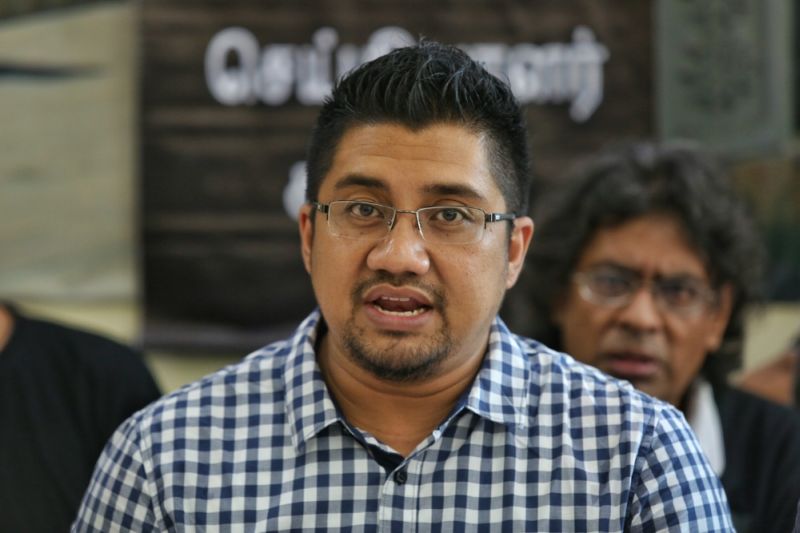MISCONCEPTIONS of EVALI and the subsequent spread of misleading information can harm smokers who are looking to quit cigarettes, said the Malaysia Society for Harm Reduction (MSHR).
Yale Medicine defines EVALI – or e-cigarette or vaping use-associated lung injury – as a serious medical condition in which a person’s lungs become damaged from substances contained in e-cigarettes and vaping products.
According to MSHR chairman Prof Dr Sharifa Ezat Wan Puteh, many parties, including the health community in Malaysia, have misinterpreted the real cause of EVALI which was previously reported in the US, and have subsequently spread that information incorrectly.
“This should not happen. As a researcher or individual in the field of health and science, assessments should be made based on facts and evidence,” she said.
“Patient history is also very important. For example, if a vape user also uses other prohibited substances in their vape liquids, have a long history of smoking and other comorbidities, then these factors also contribute to lung damage.”
Dr Sharifa said that based EVALI-related facts from the US, as of Feb 18, 2021 there were 2,807 cases of lung injuries related to EVALI, which ultimately resulted in 68 deaths in 30 states.

“Of the 2,022 patients treated at the hospital, 82% reported using products that contain prohibited substances, namely THC, which contains Vitamin E acetate. Authorities in the US have linked the EVALI cases to this fact but it has been ignored by many parties,” she observed.
“Vitamin E is widely used in food and cosmetics. It is a safe substance to be in contact with skin, but not to be inhaled.”
She added that EVALI had so far only been reported in the US, with no subsequent cases reported after that. In fact, there are no reports of EVALI in other countries.
Comprehensive information must be carefully evaluated or we risk making biased decisions. For those who do not smoke or have successfully quit smoking, then there is no need for them to start using vape, she added.
Low enforcement for vape products in the US
According to MSHR, EVALI occurred due to the low enforcement for vape products in the US and the lack of strict control in place thus making vape a product that is easily accessible even by those who are underaged.
“This also facilitated the abuse of drug substances in vape. Following the EVALI cases, legislation in the US was tightened and enforcement stepped up, with access to flavours in vape liquid controlled. Simply put, vape is not for those who never smoke and the underaged,” said Dr Sharifa.
Dr Sharifa, who is also a community health physician and a Health Economics Specialist from the Faculty of Medicine Universiti Kebangsaan Malaysia (UKM) further noted that the use of vape undoubtedly affects the health of users although the risk is lower as vape does not produce thousands of chemicals and carbon monoxide like tobacco cigarettes do.
“Several international studies have also shown that addiction to cigarettes, mixed with the many chemicals in tobacco, will severely increase addiction and make it more difficult to recover from such addiction,” she observed.
“If vape is used within proper parameters, without any substance abuse such as the case in US, it can benefit users especially smokers who are looking to quit.”
Dr Sharifa also pointed out that in Europe, Canada and the UK, vape liquids have to undergo strict screening by independent laboratories and are then accredited by their respective governments.
In these countries, there are no evidence of EVALI. In fact, there are evidence and studies showing smoking rates in these countries have declined.
Dr Sharifa added that no EVALI cases have been detected or reported in other countries including Malaysia due to “normal” vape use.
While this could be due to the lack of surveillance, she reiterated that there is no accurate patient history, including a history of chronic smoking.
She argues that if vape is allowed to be used amongst smokers, it can provide benefits in terms of reducing the harms of tobacco and lowering the population of smokers.
This is in line with the progress of other developed countries such as New Zealand, Japan, UK which have recorded a decline in the prevalence of smoking, with smokers switching to the less harmful vape.
However, just like in the UK, there still needs to be another step for vape users so that they receive proper education on the use of vape and quit totally in the end.
“Based on estimates, the rate of smokers in Malaysia will decrease from 4.88 million in 2019 to 4 million in 2025 due to various reasons including the use of vape,” she observed.
“These statistics are in line with data from several countries that allow the use of vape as a strategy to reduce the risk of tobacco, in addition to nicotine replacement therapy.
“This is an undeniable fact, as currently, there are more and more smokers switching to to vape in Malaysia, in an effort to quit smoking. However, these products need pragmatic regulations and control.” – June 21, 2022











